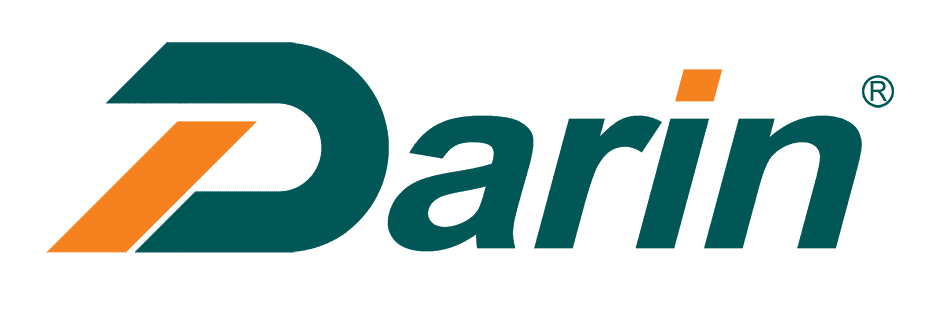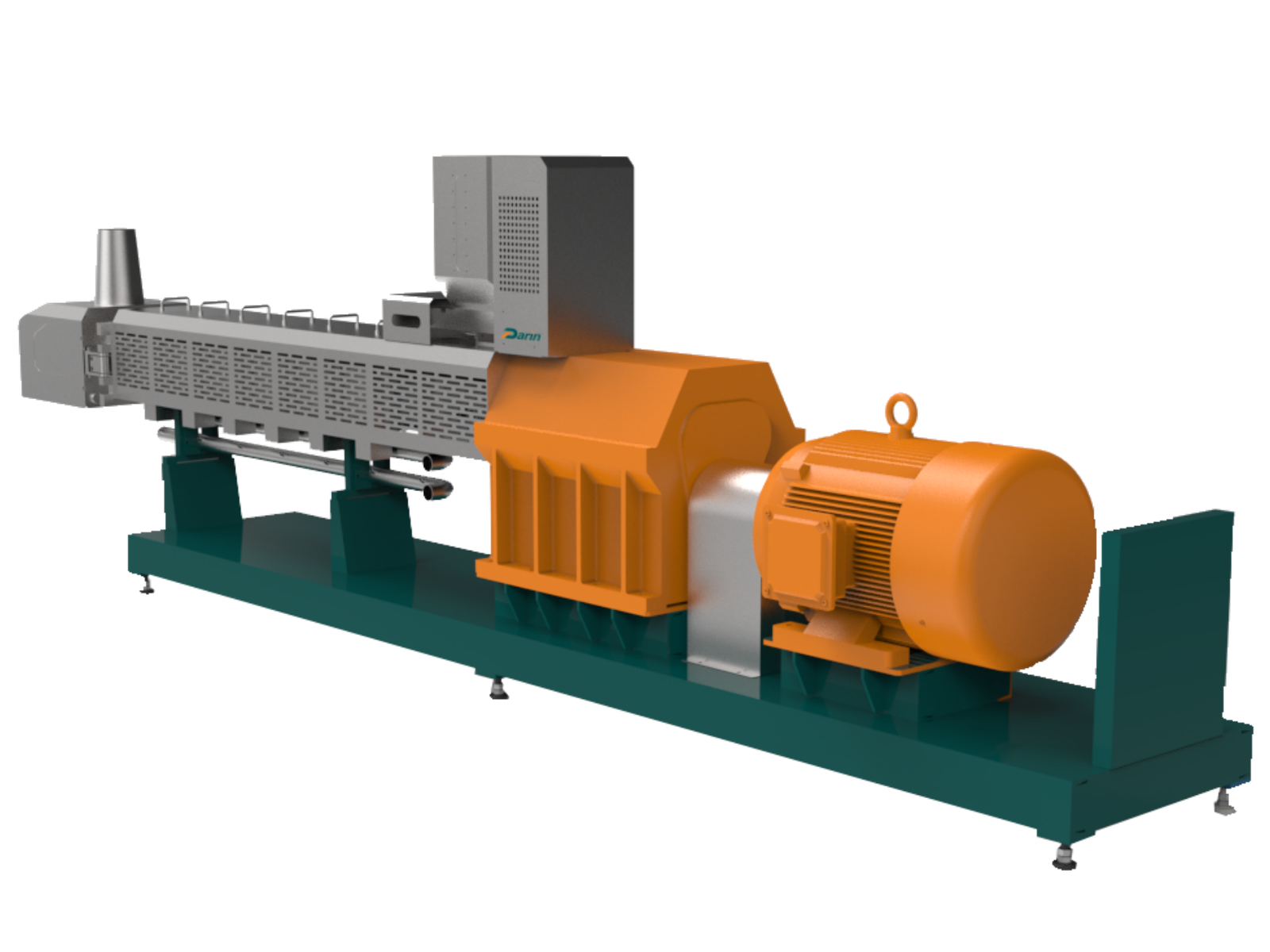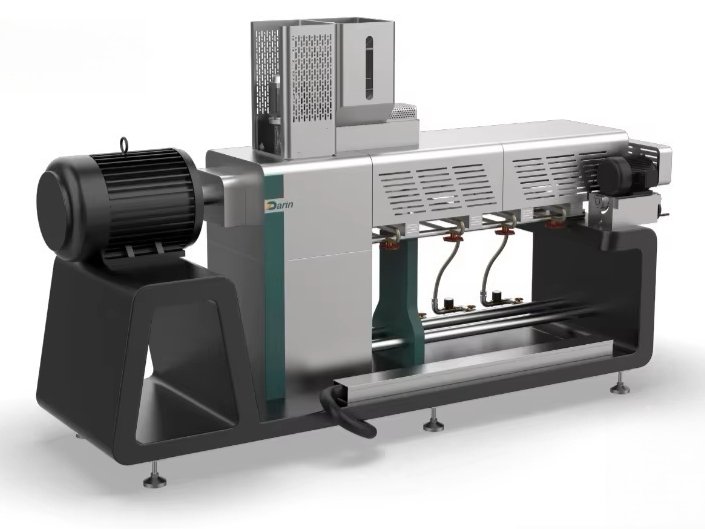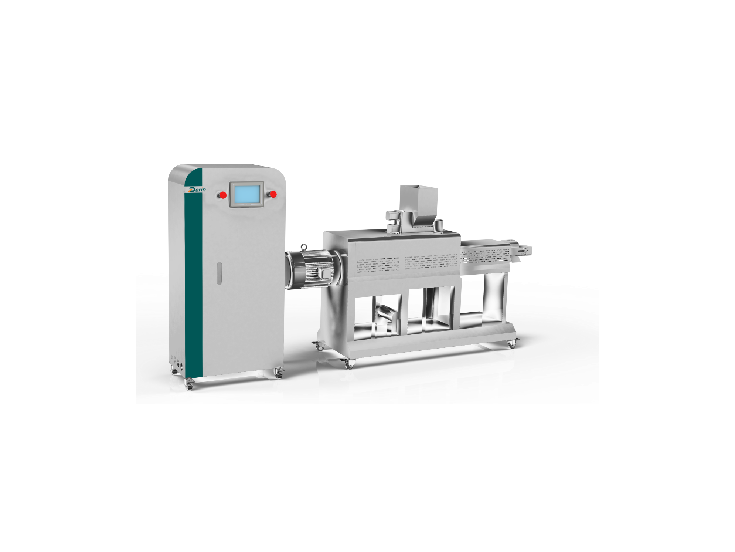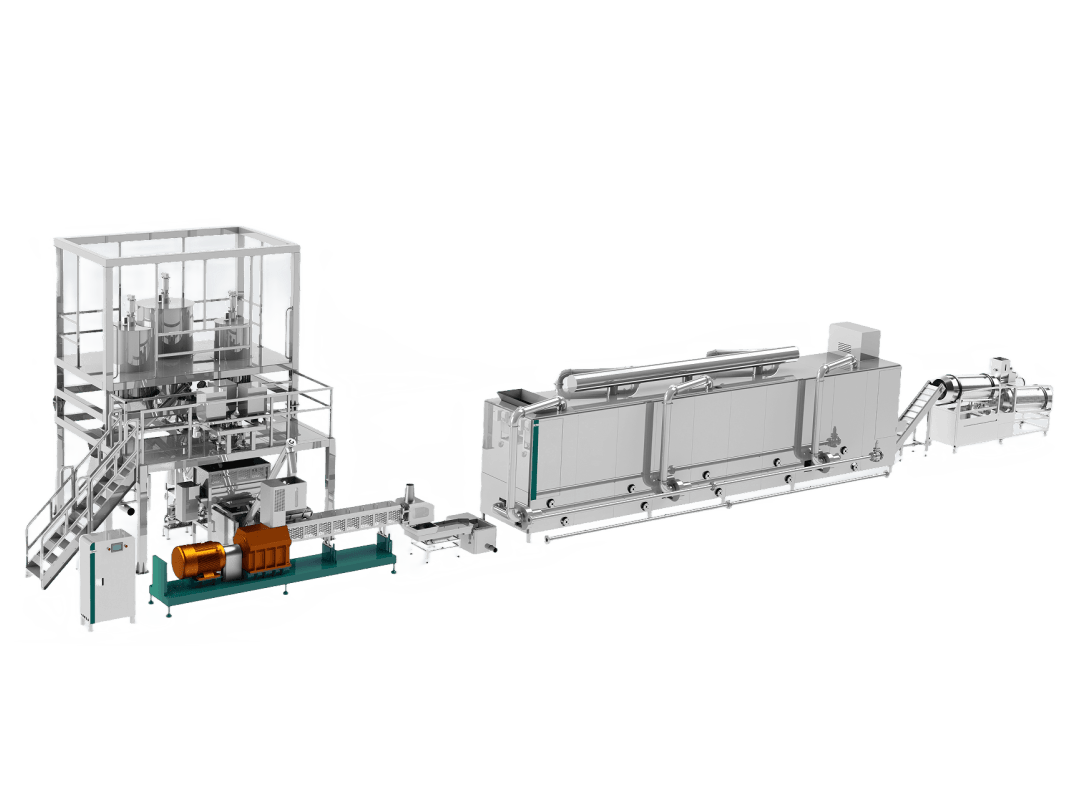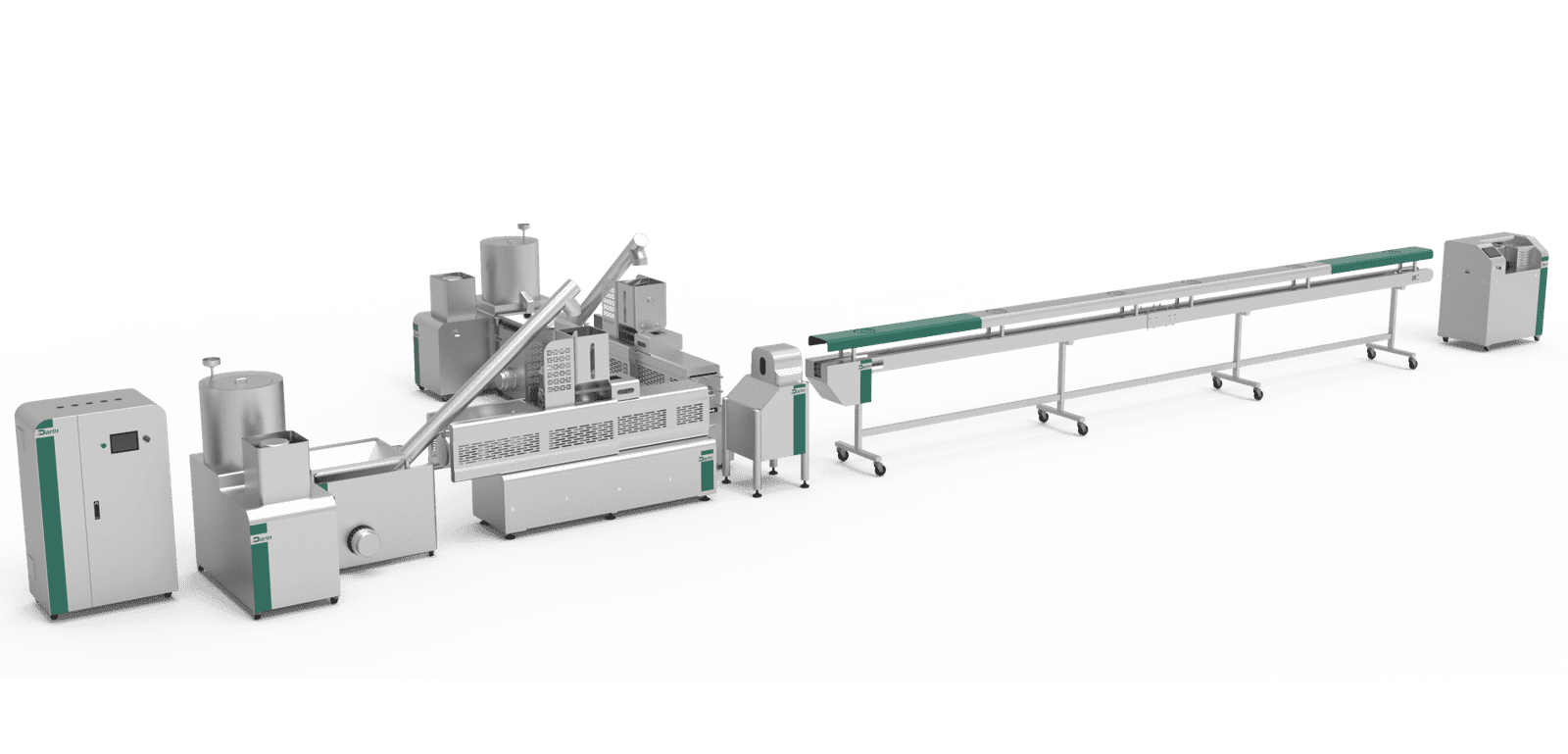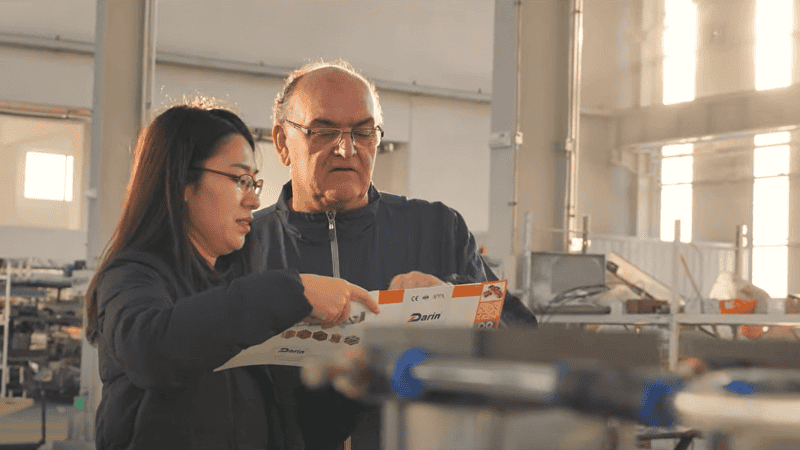
Choosing the wrong dog food machine supplier can lead to inconsistent product quality, high maintenance costs, and even production downtime. Many buyers overlook key factors such as after-sales support, machine durability, and customization capabilities—leading to regret and unnecessary expenses. Fortunately, this guide will walk you through exactly how to compare dog food machine suppliers and manufacturers, so you can make an informed, profitable decision.
To effectively compare dog food machine suppliers and manufacturers, focus on critical criteria such as machine quality, certifications, after-sales service, customization capabilities, production capacity, pricing transparency, client feedback, and industry experience. Prioritize suppliers with proven track records, strong technical support, and the ability to offer tailored solutions to meet specific production needs.
When selecting the right partner for your dog food production line, it’s easy to get overwhelmed by options. But don't worry—keep reading, and we’ll break down each criterion you should evaluate, ensuring you choose a manufacturer that guarantees long-term success for your business.
All dog food machine manufacturers offer the same quality and service.False
Dog food machine manufacturers differ greatly in quality, technical capabilities, after-sales service, and customization flexibility.
Why Comparing Dog Food Machine Manufacturers is Crucial
Dog food production machinery is a long-term investment. The machines' efficiency, durability, and output quality directly affect your brand reputation and profit margins. Choosing a reliable supplier can prevent headaches like breakdowns, high energy consumption, or inconsistent kibble sizes. Below, we'll discuss the factors you must examine, complete with data and real-world case studies to help you confidently compare suppliers.
Key Criteria for Comparing Dog Food Machine Suppliers
1. Machine Quality and Technical Specifications
Machine quality is non-negotiable. Ensure the materials used (such as stainless steel grades), motor brands, control systems (PLC, touchscreen interface), and processing accuracy meet international standards. Examine:
| Feature | Recommended Standard | Reason for Importance |
|---|---|---|
| Material | SUS304 or SUS316 Stainless Steel | Ensures hygiene, rust resistance, durability |
| Motor Brand | Siemens, ABB, or equivalent | Reliable performance, easier global maintenance |
| Control System | PLC with touch screen (e.g., Siemens) | Precision control, easy operation |
| Extruder Screw Material | High-alloy steel, nitrided or bimetallic | Longer lifespan, less wear and tear |
| Heating System | Electric/Gas, controllable zones | Energy efficiency, even cooking |
| Energy Consumption | Measured per kg output | Essential for calculating operational cost |
Real Case Study:
Company X chose Supplier A, attracted by lower initial costs. However, within six months, their machines required frequent repairs, costing 20% more than the machine price in downtime and maintenance. Supplier B, although slightly pricier, used higher-grade components, saving another client $30,000 annually due to reduced failures.
2. Certifications and Compliance
Ensure the manufacturer holds necessary certifications:
| Certification | Purpose |
|---|---|
| CE | Conformity with European health, safety, environmental laws |
| ISO 9001 | Quality Management System |
| SGS/TÜV/Intertek Testing | Third-party quality and safety inspection |
| UL (For North America) | Electrical equipment safety compliance |
Request documentation proof, as non-compliance may prevent you from entering specific markets.
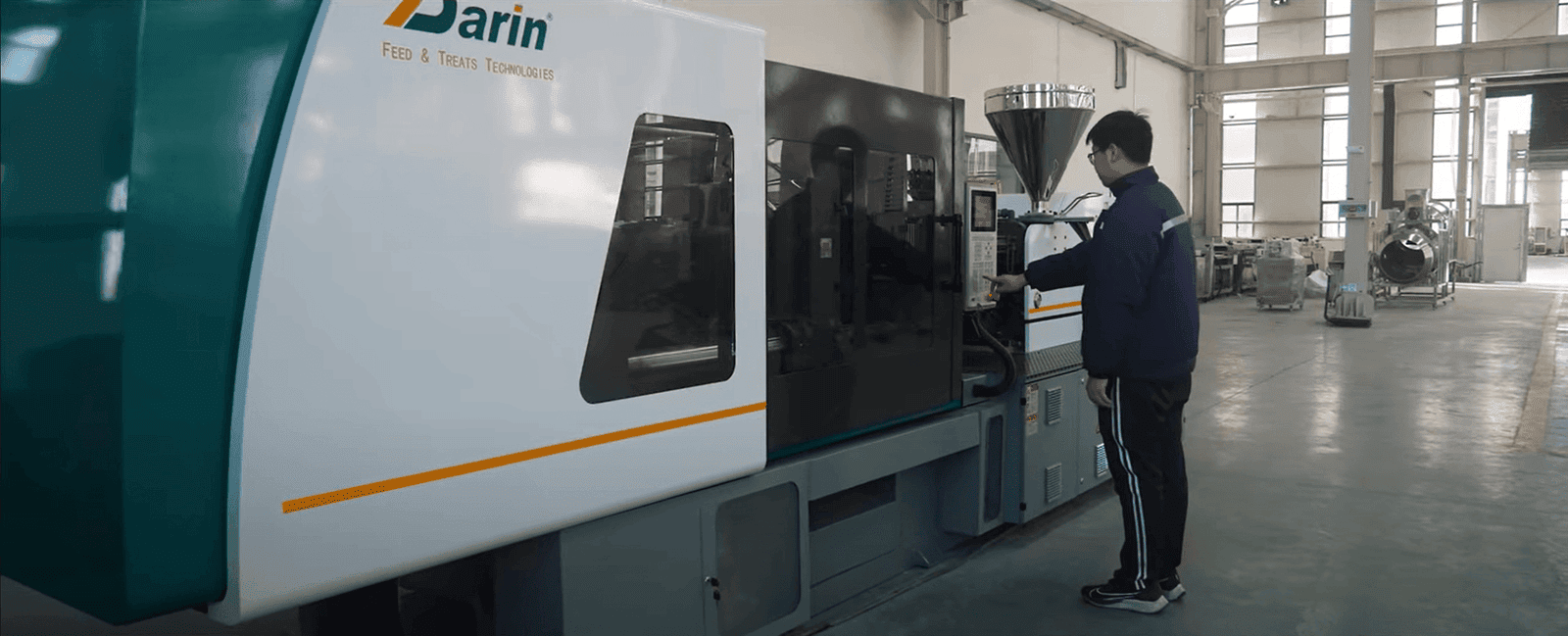
3. After-Sales Service & Technical Support
A critical differentiator is after-sales service. Check:
| Service Aspect | Key Questions to Ask Manufacturer |
|---|---|
| Installation & Commissioning | Do they offer on-site installation and training? |
| Spare Parts Supply | Are parts stocked locally or easily shipped? |
| Response Time | How quickly do they address breakdowns? 24/7 support? |
| Maintenance Training | Do they provide manuals and preventive maintenance guidance? |
Example:
Supplier C offers a two-year warranty, local service centers, and remote diagnostics. Their clients report 98% uptime, compared to 85% for suppliers lacking proper after-sales infrastructure.
4. Customization Capabilities
Not all production lines are the same. A good manufacturer offers customization:
| Customization Option | Benefit |
|---|---|
| Kibble Shape & Size Molds | Tailored to target market preferences |
| Production Line Layout | Optimized for factory space |
| Recipe Adjustability | Ability to process various ingredients (meat, grains, additives) |
| Automation Levels | Match your labor availability and cost |
Request case studies or references where the supplier delivered bespoke solutions.
5. Production Capacity & Machine Scalability
Your supplier should offer various models catering to different capacities. Evaluate:
| Production Capacity Range | Suitable For |
|---|---|
| 100-500 kg/h | Startups or niche market producers |
| 500-2000 kg/h | Medium-scale commercial production |
| 2000+ kg/h | Large-scale manufacturers |
Also, inquire whether the machinery is scalable—can they upgrade lines when you expand?
6. Pricing Transparency and Cost Analysis
Don’t be lured by the cheapest offer. Break down costs:
| Cost Aspect | Key Considerations |
|---|---|
| Machine Price | Initial cost vs. quality |
| Shipping & Duties | Incoterms used (FOB, CIF) |
| Installation/Training Fees | Included or extra |
| Operational Cost | Energy, labor, maintenance |
| ROI Calculation | Expected payback period |
Request a Total Cost of Ownership (TCO) analysis to avoid hidden expenses.
7. Client Feedback & References
Ask for references and client testimonials:
| Feedback Type | How It Helps |
|---|---|
| Existing Client Contacts | Direct insights on reliability & service |
| Case Studies | Proof of successful projects |
| Industry Recognition | Awards, participation in trade shows, media mentions |
8. Years of Experience & Market Presence
An established manufacturer has a refined production process and likely offers stable machinery:
| Experience Level | Consideration |
|---|---|
| <5 Years | Risk of limited technical expertise |
| 5-15 Years | Medium reliability; check specific client cases |
| 15+ Years | Proven stability, possible international presence |
Comparative Table: Evaluating Dog Food Machine Suppliers
| Evaluation Criteria | Supplier A | Supplier B | Supplier C |
|---|---|---|---|
| Machine Material Quality | Standard SS304 | Premium SS316 | Standard SS304 |
| Motor Brand | Local Brand | Siemens | ABB |
| Control System | Basic Buttons | Siemens PLC | PLC + Remote Monitoring |
| Certifications | CE Only | CE + ISO + SGS | CE + ISO |
| Customization Capability | Limited Shapes | Fully Customized Lines | Standard Models Only |
| After-Sales Support | Email Only | 24/7 Hotline + Local Engineers | One-Year Warranty Only |
| Client Testimonials | Minimal | Multiple Case Studies Provided | Few Testimonials |
| Price | Low | Medium, Transparent | Low |
| Years in Industry | 7 Years | 18 Years | 10 Years |
Final Thoughts: How to Make the Right Choice
Selecting the right dog food machine manufacturer is not just about comparing prices—it's a comprehensive evaluation of quality, reliability, service, and long-term value. Always request detailed technical documents, TCO analysis, and client case studies before making your decision.
Contact Us for Expert Guidance!
Are you ready to choose the right dog food machine supplier tailored to your business needs? Contact us today for personalized recommendations, technical consultations, and access to our state-of-the-art machinery options. Let’s ensure your dog food production line is a success!
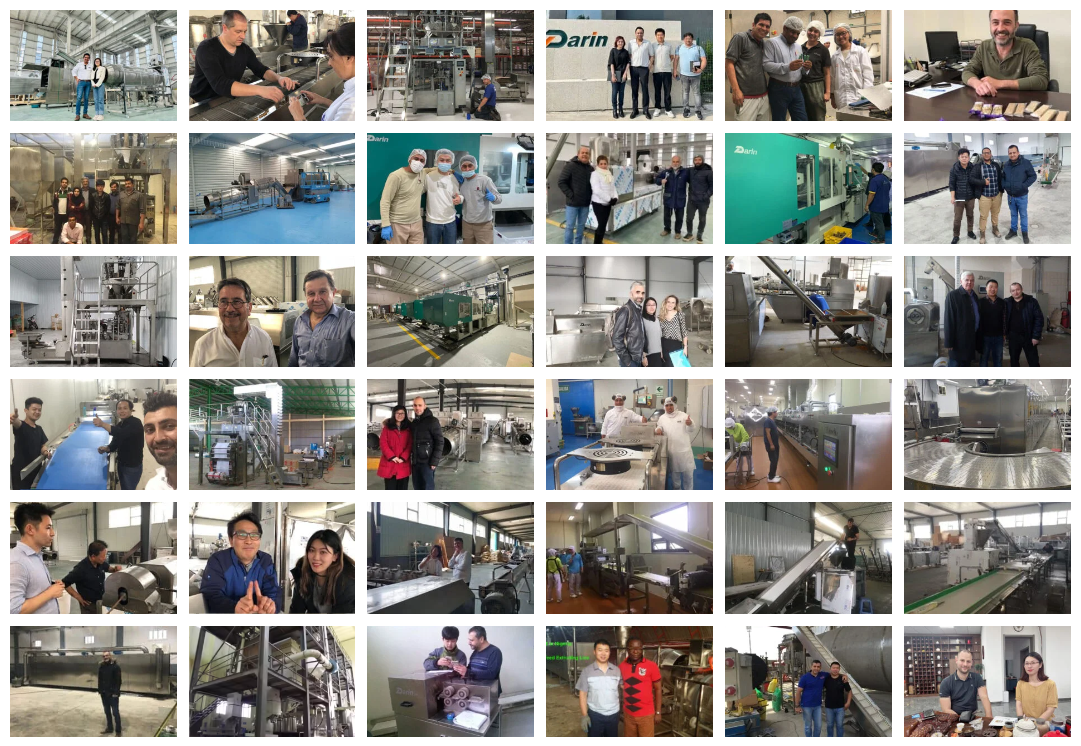
FAQ
Q1: What criteria should I use to compare dog food machine suppliers?
A1: When comparing suppliers, focus on criteria such as product quality, certifications, production capacity, customization options, pricing, warranty terms, customer reviews, after-sales support, and delivery timelines. Evaluating these factors ensures you partner with a reliable manufacturer.
Q2: How do I assess the reputation of a dog food machine manufacturer?
A2: Check online reviews, industry forums, testimonials, and case studies. Also, consider the manufacturer's years of experience, their client portfolio, and whether they participate in recognized trade shows or hold industry certifications.
Q3: Why is after-sales support crucial when selecting a dog food machine supplier?
A3: Reliable after-sales support ensures smooth installation, proper training, regular maintenance, and easy access to spare parts. It minimizes downtime and enhances the longevity and efficiency of your dog food machine.
Q4: How can I compare pricing among different dog food machine suppliers?
A4: Request detailed quotes that include all costs, such as shipping, installation, and warranty services. Compare not only the price but also the value provided, including machine durability, technology, and additional services.
Q5: What role do certifications play in choosing a dog food machine manufacturer?
A5: Certifications like ISO, CE, or FDA compliance indicate adherence to quality, safety, and hygiene standards. They reflect the manufacturer's commitment to delivering reliable and legally compliant equipment.
References
- How to Evaluate Pet Food Equipment Manufacturers - https://www.petfoodindustry.com/articles/10500 - Pet Food Industry
- Comparing Pet Food Machinery Suppliers: Key Considerations - https://www.foodprocessing.com/articles/2020/pet-food-suppliers-guide - Food Processing
- Certifications to Look for in Pet Food Equipment - https://www.feedstrategy.com/regulatory/certifications-pet-food-equipment - Feed Strategy
- Importance of After-Sales Service in Food Machinery - https://www.foodengineeringmag.com/articles/98542-after-sales-service-guide - Food Engineering
- How to Assess Manufacturer Reputation - https://www.bakerperkins.com/assessing-manufacturer-reputation - Baker Perkins
- Pet Food Processing Equipment: Buyer’s Checklist - https://www.meatpoultry.com/articles/25100-buyer-checklist-pet-food-machinery - Meat & Poultry
- Trade Shows & Certifications for Pet Food Equipment - https://www.petfoodprocessing.net/articles/14500-pet-food-equipment-events - Pet Food Processing
- Price vs Value in Pet Food Machinery - https://www.automationworld.com/industries/food-beverage/article/21042561 - Automation World
- What to Ask Suppliers Before Buying Pet Food Equipment - https://www.allaboutfeed.net/market-trends/questions-for-pet-food-suppliers - All About Feed
- Guide to Comparing Dog Food Machine Manufacturers - https://www.petfoodprocessing.net/articles/14002-dog-food-machine-comparison-guide - Pet Food Processing
